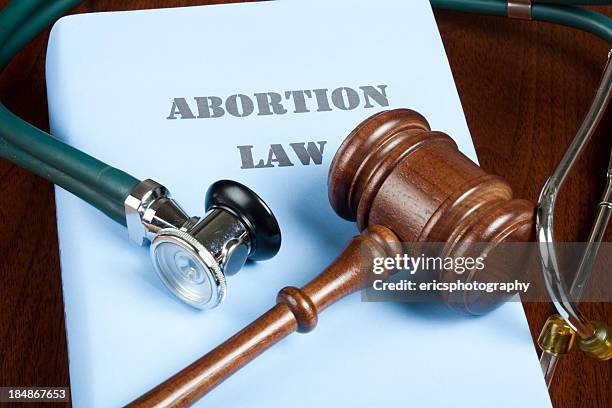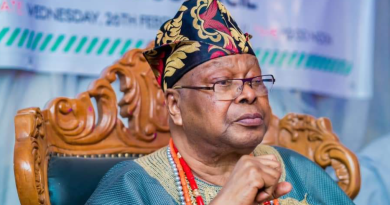Addressing Menace Of Unsafe Abortion, By Hameed Oyegbade
“Blessing Sunday Etim is just one of the many lives lost to lack of access to legal and safe abortion in Nigeria due to laws prohibiting abortion in the country. Experts lamented that at least, 40 percent of maternal deaths in the country were linked to abortion-related complications, many of which occur outside proper medical facilities”

The unfortunate consequences of restrictive abortion law in Nigeria have continued to stare us in the face as women and young girls who choose to terminate their unwanted pregnancies resort to clandestine abortion and the statistics of mortality resulting from unsafe abortion keep surging.
Girls and women get pregnant, sometimes from rape, incest, or financial desperation, and because abortion is criminalized, they go to chemists or traditional homes to terminate the pregnancy. Abortion is illegal in Nigeria. The law prescribes up to 14 years in prison for any doctor who assists in abortion.
Unfortunately, this legal barrier doesn’t stop women from aborting pregnancies, it only drives them to unsafe environments. Many of these women resort to local or unqualified individuals and facilities, where substandard procedures often lead to severe infections, uncontrolled bleeding, and death. By the time complications develop, they arrive at hospitals too late. Some of them die before anything could be done.
While some girls and women are victims of rape and sexual assault, leading to undesired pregnancies, reasons given by others for their decisions to abort pregnancies include the resolve to complete their education or that their partners refused paternity while other women claim that they had completed their families. Experts in Maternal and Reproductive Health described unsafe abortion as a “silent killer” of women in the country, blaming poverty, ignorance, and Nigeria’s restrictive abortion laws for the growing number of preventable deaths.
The Police in Akwa Ibom State recently arrested a self-acclaimed medical doctor, Sunday Okon Akpan, for allegedly killing a 35-year-old woman during a botched abortion at his clinic in Ibesikpo Asutan Local Government Area. Akpan was arrested on August 19,2025 following reports that the victim, identified as Blessing Sunday Etim, died after undergoing an illegal abortion at his facility. The suspect, who owns and operates Full Life Medical Centre in Ikot Obio Odong, was discovered to be a community health practitioner with no medical licence or nursing qualification, according to the Police Public Relations Officer in the state, DSP Timfon John.
Blessing Sunday Etim is just one of the many lives lost to lack of access to legal and safe abortion in Nigeria due to laws prohibiting abortion in the country. Experts lamented that at least, 40 percent of maternal deaths in the country were linked to abortion-related complications, many of which occur outside proper medical facilities.
A Professor of Obstetrics and Gynecology at Obafemi Awolowo University, Ile-Ife, Osun State, Ernest Orji in his recent interview in a National Newspaper identified unsafe abortion as a major contributor to the country’s staggering maternal death figures. The maternal health expert decried the worsening economic situation in Nigeria, which he said is driving more women to seek dangerous alternatives during unintended pregnancies.
He described poverty as the root cause of most maternal deaths, saying it fuels ignorance, limits access to proper healthcare, and pushes women into desperate and often fatal decisions. According to him, unsafe abortion accounts for a significant portion of maternal deaths in Nigeria, with some studies suggesting that as much as 40 percent of maternal mortality is linked to complications arising from abortions carried out in unsafe conditions.
A Federal High Court in Abuja, the nation’s capital recently delivered a ruling in which it declared that where an unlawful carnal knowledge of a woman results in pregnancy, it is a fundamental human right of that woman to get it terminated if she does not want to keep the pregnancy. This was an improvement on the existing legal regime where it was only when the life of the woman is in danger that she could see abortion.
Definitely, the decision of this court signified another milestone in the push for expansion of access to safe abortion in Nigeria, even for the fact that the court recognized that a woman that was raped could legitimately seek safe abortion if such resulted in pregnancy, It’s a step forward, towards protecting the reproductive rights of women and young ladies in Nigeria.
This Federal High Court of Abuja’s first-of-its-kind decision in the case filed by the Reproductive Justice Initiative Foundation (RJIF), with support from Ipas Nigeria health foundation affirms abortion rights for survivors of sexual violence in Nigeria.
The court declared that pregnancy resulting from unlawful carnal knowledge in breach of a woman’s or girl’s health and reproductive rights constitutes a violation of her rights to physical and mental health, as guaranteed under Articles 16(1), 18(1), and 18(3) of the African Charter on Human and Peoples’ Rights. This is the first time a superior court in Nigeria has interpreted the law to affirm that pregnancies resulting from sexual violence amount to a violation of both physical and mental health, and with that, has expanded the legal framework to uphold survivors’ right to access abortion services. This precedent-setting decision is binding on all courts and authorities across Nigeria.
As a panacea to unsafe abortion, there is urgent need for reforms that would eliminate restrictive abortion laws to reduce deaths from abortion-related complications and ultimately reduce maternal mortality.
Meanwhile, we are losing young lives every day because our system refuses to acknowledge the realities. Women will continue to seek abortions, whether we legalize it or not. The only difference is whether they live or die. It’s not a moral debate at this point; it’s a public health emergency.
A reproductive health advocate and consultant at Lagos University Teaching Hospital, Dr. Kemi Oduyemi warned that the lack of safe abortion services, combined with widespread stigma and moral judgment surrounding unplanned pregnancies, is driving many Nigerian women, especially young girls, into life-threatening situations.
According to her, Nigeria’s restrictive reproductive health policies have created a dangerous environment where desperation and silence often lead to death. Oduyemi noted that despite the legal restrictions, women, especially adolescents, students, and unmarried young adults, are still getting pregnant and seeking ways to terminate those pregnancies.
At the International Safe Abortion Day in Abuja recently, Dr Talemoh Dah of Gibonna Women’s Hospital, in his keynote address, noted that unsafe abortion contributes 10 percent of maternal mortality annually, which is 6,000 deaths.
The conference with the theme: Reproductive Justice: Crashing Maternal Mortality through reduced Unsafe Abortions, organized by Ipas Nigeria Health Foundation aimed at proffering solutions to avoidable deaths from unsafe abortion. It was attend by stakeholders from all walks of life including Officials of the Federal Ministry of Health and members of Civil Societies including Persons With Disabilities as well as medical and legal experts.
Ipas Nigeria Country Director Dr Lucky Palmer described unsafe abortion as a major cause of preventable deaths in Nigeria and called of urgent action to prevent avoidable deaths from unsafe abortion.
Stakeholders in Nigeria have called for a review of abortion laws in Nigeria which is a major barrier to accessing abortion care in the country, having identified unsafe abortion as major cause of high rate of maternal mortality in Nigeria. A Public Health Specialist, Mariam Olaide Jagun appealed to Federal Government to take action to without further delay by ensuring access to safe abortion and abortion care services across the country with any inhibition.
The Director of Family Health at the Federal Ministry of Health and Social Welfare, Dr Binyerem Ukaire, represented by Mr Robert Daniel said Federal Government is committed to addressing the challenge of unsafe abortion as he commended Ipas Nigeria Health Foundation for its efforts and pledged the cooperation of the Ministry to tackle unsafe abortion in the country.
In conclusion, considering the disturbing situation concerning the number of avoidable deaths from unsafe abortion, it has become imperative to decriminalize abortion in Nigeria. Criminalizing abortion does not reduce its occurrence but only makes it more dangerous, especially for poor women who lack access to safe alternatives. Every pregnant woman in Nigeria should have free access to comprehensive abortion services care. That way, they are encouraged to go to the hospitals and seek the right treatment. There is need for massive investment in family planning towards preventing unintended pregnancies and reducing the rate of abortions and their complications.
Oyegbade, a public affairs analyst writes from Osogbo, Osun State, Nigeria



